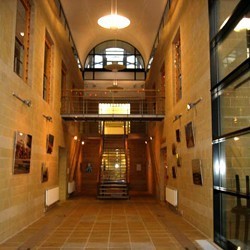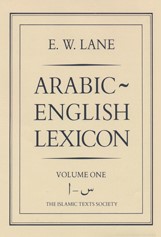Afzal Hasan, Subject Specialist Librarian for Arabic and Islamic Studies
at the University of Exeter, explains his role and describes their Middle East collections.
I look after the Middle East, Politics and Security Studies Collections at the University of Exeter. My official role is Academic Support Consultant – or Subject Librarian. This is a fairly specialist role given the languages used: Arabic, Persian, Kurdish, Turkish as well as the familiar western languages. I’ve been doing this since 2010, employed initially as the Mid-East Librarian – previously having volunteered at the Bodleian, and having worked at British Councils in the Middle East as a teacher.
Exeter is a major centre in the UK for Arabic & Islamic Studies with Institute of Arab and Islamic Studies [IAIS] and related Area Studies eg Kurdish Studies.

Besides a growing and comprehensive modern collection on the Middle East especially given the world of today, I will mention a collection which retains uniqueness. At first IAIS contained the nationally recognised Arab World Documentation Unit [AWDU] but now this has relocated to the Old Library. On the collections in AWDU I wrote the following description on our webpages:
The Arab World Documentation Unit – AWDU – located [now] in the Research Commons Old Library provides unique collections, totalling over 100,000 items on Arab Gulf states: Saudi Arabia, Kuwait, Oman, Qatar, Bahrain, Yemen, United Arab Emirates as well as the wider Arab world including Egypt, Lebanon, Syria, Jordan. AWDU collects mainly documentary reference material such as statistical data, country reports, official publications, political opposition newsletters and Pan-Arab literature. The Unit holds substantial archival, historical and sociological material from the mid-18th century onwards, such as the Bombay Diaries (held in Special Collections – 16,000 selected photocopied pages from 1778 to 1820) which were originally the ledgers of the Secret & Political Department in Bombay, contents guide is here, as well as microfilms from British, American, Indian, French and Portuguese government archives and around 500 volumes of reproduced documents from the British Public Records Office published by Archive Editions. There are also important collections of private papers and diaries such as the valuable Uri Davis collection – containing 2600 volumes of books, 600 pamphlets and 400 volumes/boxes of periodicals mainly dealing with the Arab-Israeli Conflict, as well as microfiche holdings of documents on Palestine during the Mandate period and after 1948.

The emphasis on the Mid East gulf you’ll note is a particular strength. The collection of private and personal papers include those of Sir Charles Belgrave (1894-1969), Advisor to the Rulers of Bahrain, 1926-57. Sir William Luce (1907-77), British Governor of Aden, 1956-60; Political Resident in the Gulf, 1961-6; British Special Representative for Gulf Affairs (in charge of Britain’s withdrawal from the Gulf), 1966-72.
The main Library – the Forum Library contains the modern bulk of Middle East material as well as Politics, and Security Studies.

Being the Arabist that I am, I should say my favourite item in all of the collections must be Edward William Lane’s Arabic-English Lexicon – a work of 30 years’ superlative scholarship. It’s been my constant companion since my undergraduate days. The Islamic Texts Society brought out a superb two volume edition in 1984.
For me, what’s really exciting is the University of Exeter’s Digital First Strategy, the Open Access Movement, the events and dynamics taking place in the world, internationalisation strategy, and how the Library continues to play its part.
Afzal Hasan MCLIP
Librarian: Arabic | Politics | Security Studies
University of Exeter
Explore Copac records for Arabic language materials at the University of Exeter Library.
All images copyright the University of Exeter Library and reproduced with the kind permission of the copyright holder.
Categories

